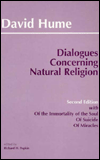What was not the focus was the genocide taking place in that nation. That was the after thought: "oh, yeah, this is why Rice is even in the country. Here's some shots of her with women who have been repeatedly raped by soldiers and are now in a camp for protection. BUT did you see the way their guards pushed OUR camera guys out of the office when we started asking questions?!?! Don't the Sudanese know about the First Amendment?"
This is part of the problem for our post-modern culture: what is valuable is determined by us, by our tastes, by our channel changer.
And when we do not have a taste for being informed of the real horrors of Africa--detail by detail--it is no longer "newsworthy." So sad. It is an incredible power that we possess to simply change the channel, and deem such atrocities irrelevant.
Capitalism is based on demand, and unless we long to here raw, awful things from around the world, such events will not be news. Instead, Tom Cruise's opinion of anti-depressants, or Michael Jackson's seduction techniques will capture our headlines.
It blows my mind that talk of reparations for slavery has been covered more extensively by politicians and (especially) by university classes and journal articles than the current slave trade in Asia of little girls. Making the descendents of slave owners pay for things their great, great grandfather did is obviously worth more of our intellectual energy than actually freeing slaves (some of whom make Americans rich through the lavish porn empire and 'hot_asian_hoochies.com' or whatever).
Christ followers need to be at the front of demanding that human pain be front and center from our journalists. It is not pretty, but only by seeing what is tragic can a communal desire for justice arise. When moral issues (like the Terri Schivo circus) grab headlines, things get done. That's how a democracy like ours works: its design makes it reactive. This is why the American Media, not any president or court, hold the most power on earth. They can tell hundreds of millions of people each day what is real, and through there words can determine what our congress and president must react to. We must pray for such folks, and encourage them as Brian McLaren does in This Article.









